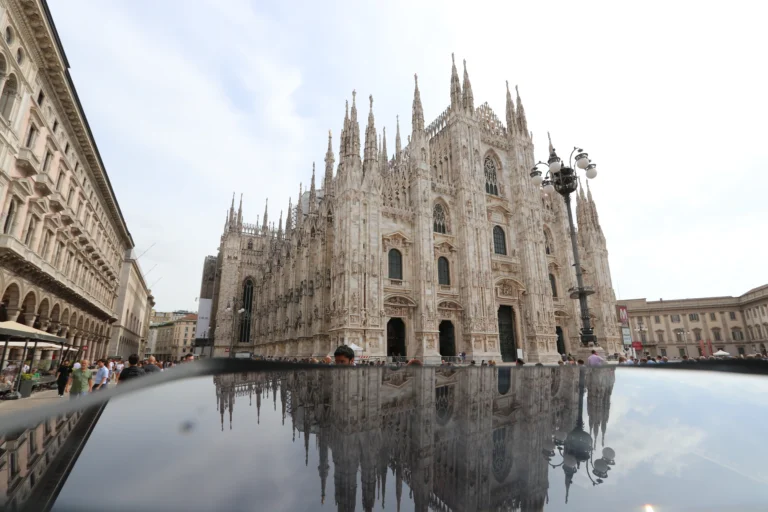
motto from the trip
Uhuru na Umoja Freedom and Unity
In swahili
2022
#4 ZANZIBAR | P1 | The raining season, Ramadan & 2 tourists
WATCH FULL MOVIE HERE


Amsterdam + 7.272,14 km = Zanzibar
When we take an overnight flight from Amsterdam to Zanzibar, the airport is quiet and peaceful. The flight attendants greet us with a warm smile and help us find a place in a darkened cabin. We sit back and feel comfortable before the long journey ahead.
The cabin lights are dimmed, and most of the passengers around us are already asleep. We decide to do the same, sit back and close our eyes, hoping to get some rest.
As we rise into the night sky, the hum of the engines lulls me to sleep. The cabin is quiet except for the occasional sound of someone moving in a seat or the faint hum of stewards moving around the cabin.
I wake up from sleep, my mind drifting between dreams and the reality of flying. I feel the gentle undulation of the plane as we pass over the vast Mediterranean Sea, then the darkness of the African continent.
At some point in the middle of the night, I wake up confused and dazed. I look out the window and see only the darkness of the sky outside. I glance at my watch and realize we still have a few more hours to land in Zanzibar.
I decide to stretch my legs and walk around the cabin, listening to the soft hum of the engines and the plane’s gentle movement. I take a cup of water from the steward and return to my seat, trying to relax and get some sleep before we reach our destination.
As the night passes, I fall asleep, and before I know it, the cabin lights come on as we prepare to descend to Zanzibar. I rub my sleepy eyes and look out the window as the first rays of dawn begin to illuminate the African landscape below. The anticipation of a new adventure fills us up and we can’t wait to discover all that Zanzibar has to offer.
Welcome to the paradise
Uroa and close area
Uroa is a charming fishing village on the east coast of Zanzibar and I cannot resist its natural beauty upon arrival. The crystal clear waters of the Indian Ocean stretch out before me, and the white sands seem to go on forever.
Walking through the village, we are struck by the friendly and hospitable nature of the inhabitants. We are greeted with smiles everywhere, and we feel as if we are part of the community.
The village is full of traditional Swahili buildings, many of which are painted in bright shades of blue, green and pink. We hear the sounds of the ocean and local fishermen going about their daily business, mending their nets and preparing their boats for the catch of the day.

One of the things that makes Uroa so special is its connection to the sea. We can snorkel or scuba dive to explore vibrant coral reefs and colorful marine life. The water is warm and inviting and we feel like we are swimming in a natural aquarium as we see shoals of fish, sea turtles and sometimes even dolphins.<
In the evening, we admire the beautiful sunset over the ocean, with shades of orange, pink and purple painting the sky. Sitting on the beach, we savor the peace of the moment and feel grateful that we are in such a beautiful place.
Uroa is a piece of paradise on the island of Zanzibar and we are very lucky to have experienced this unique blend of natural beauty and cultural charm.
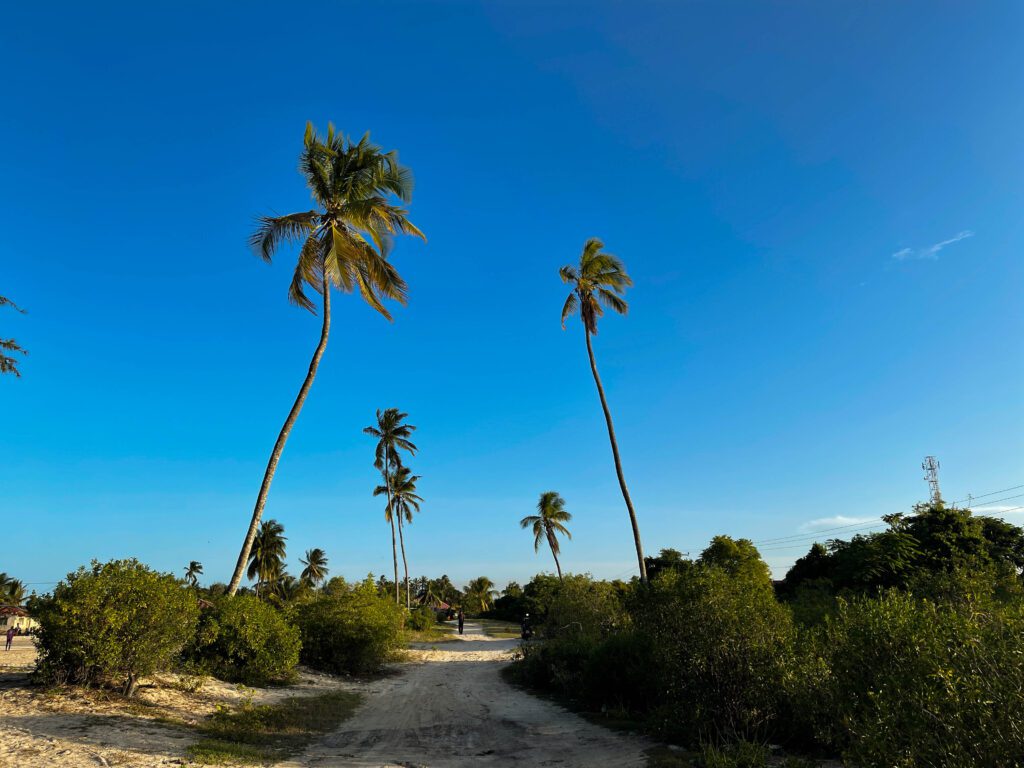
kiwengwa cave
The Kiwengwa Caves are a unique geological formation on the north-eastern coast of Zanzibar. As I approach the caves, I am struck by their mysterious and almost eerie appearance, hidden in lush green vegetation.
The caves are formed from ancient coral rocks, and their walls are covered with a layer of moss and ferns that give them a greenish tint. I see intricate patterns carved into the rock over time, adding to the natural beauty of the caves.
Walking through the caves, we feel the cool air and hear the sound of water dripping in the distance. The caves are dimly lit, which adds to the mystical atmosphere.
The caves are also steeped in history and legends. They would be used as a hiding place for slaves during the slave trade in East Africa. Later, it also served as the hideout of the infamous pirate Captain Kidd.
Despite their dark history, the caves are now a peaceful and tranquil place to explore. I can hear the sounds of birds and other animals outside the caves, which enhances the feeling of oneness with nature.
One of the most striking features of the Kiwengwa Caves is the natural pool that forms at the end of the cave system. The water is crystal clear and the light coming from above gives the pool an otherworldly glow. I see fish swimming in the water and I can’t help but be enchanted by the calmness of the scene.
Overall, Kiwengwa Cave is a fascinating and unique natural wonder that offers a glimpse into Zanzibar’s past and a peaceful place to connect with nature in the present.


nungwi
Nungwi is a wonderful fishing village on the northern tip of Zanzibar Island and one of the most popular tourist destinations on the island. As I approach Nungwi, I am struck by the clear blue waters of the Indian Ocean, the white powder and the relaxing atmosphere.
The village is home to a vibrant mix of cultures, and I can see Swahili and Arabic influences in the architecture and cuisine. The streets are lined with small shops selling handicrafts, jewelry and souvenirs, and there is live music and buzz in the many restaurants and bars.
One of the main attractions of Nungwi is the beautiful beach, considered one of the best on the island. The beach is wide and stretches for miles and the water is warm and inviting. In the distance we see local fishermen sailing in their traditional dhows, adding to the beauty of the scene.
The village also has several historic sites, including the Mnarani Natural Aquarium, which is dedicated to protecting sea turtles. Visitors can see turtles up close and learn about the important role they play in the local ecosystem.
Another popular attraction in Nungwi is the lighthouse, which offers panoramic views of the surrounding coastline. The lighthouse is a popular place to watch the sunset, and I can see the sky changing color as the sun sinks below the horizon.
Nungwi is a charming and peaceful village that offers a mix of culture, history and natural beauty. Whether you’re lounging on the beach or exploring the local shops and attractions, there’s always something to see and do in this vibrant and friendly community.


spice farm
Stepping into the lush greenery of a spice farm in Zanzibar, we are immediately greeted by the aromatic scent of cinnamon, cardamom and cloves. The farm is a feast for the senses, with rows of exotic plants and trees, and my guide explains to me the various herbs that grow on the island.
Continuing our tour, I am struck by the abundance of fruits and vegetables growing around us. We taste fresh and juicy fruit straight from the tree, including mango, pineapple and passion fruit. We are amazed at the variety of tropical fruits grown on the island.
One of the highlights of the spice farm tour is the singing man in the palm tree. We hear a soft melody coming from above, and when we look up, we see a man singing and picking fresh coconuts high in a palm tree. It is a unique and enchanting experience that I will never forget.
After the tour, we sit down to enjoy a delicious meal consisting of traditional Zanzibar dishes, prepared with freshly picked spices and herbs from the farm. The flavors are rich and complex and I can feel the difference in freshness and quality.
All in all, a spice farm tour is an enchanting experience that gives you an insight into Zanzibar’s rich agricultural heritage. From tempting aromas to colorful fruits and a singing man on a palm tree, it is an unforgettable journey for the senses.
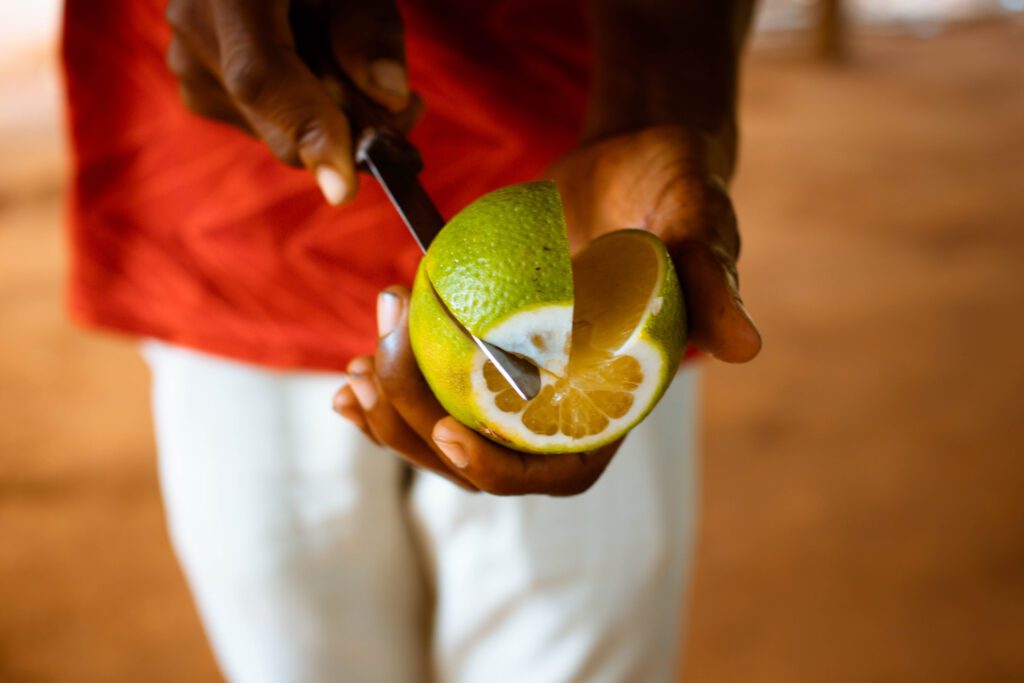
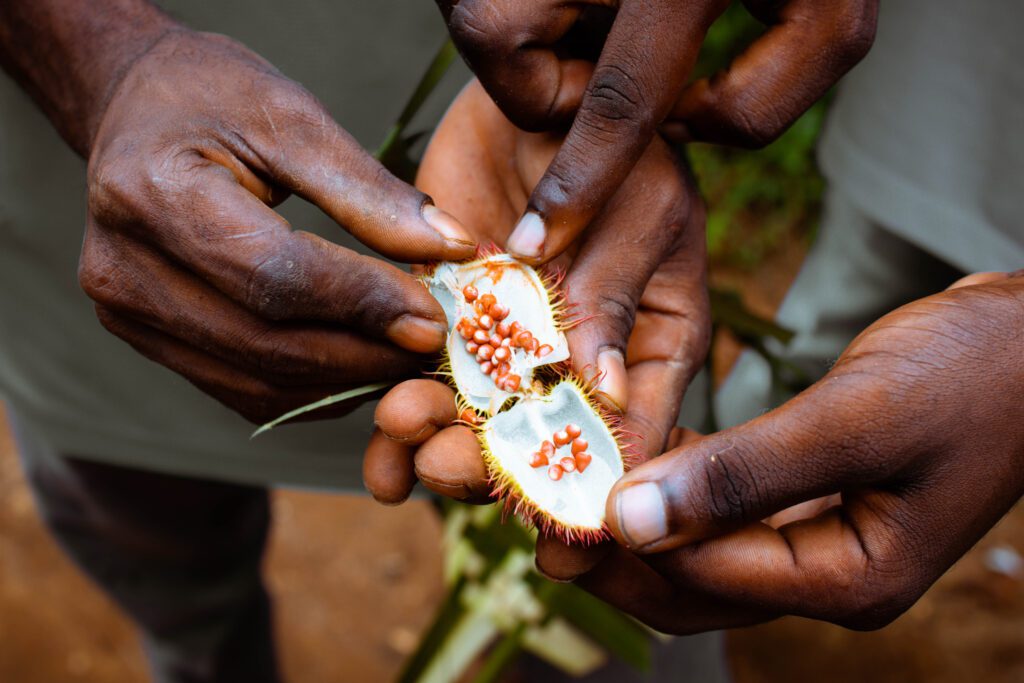
How looks ramadan
in Zanzibar?
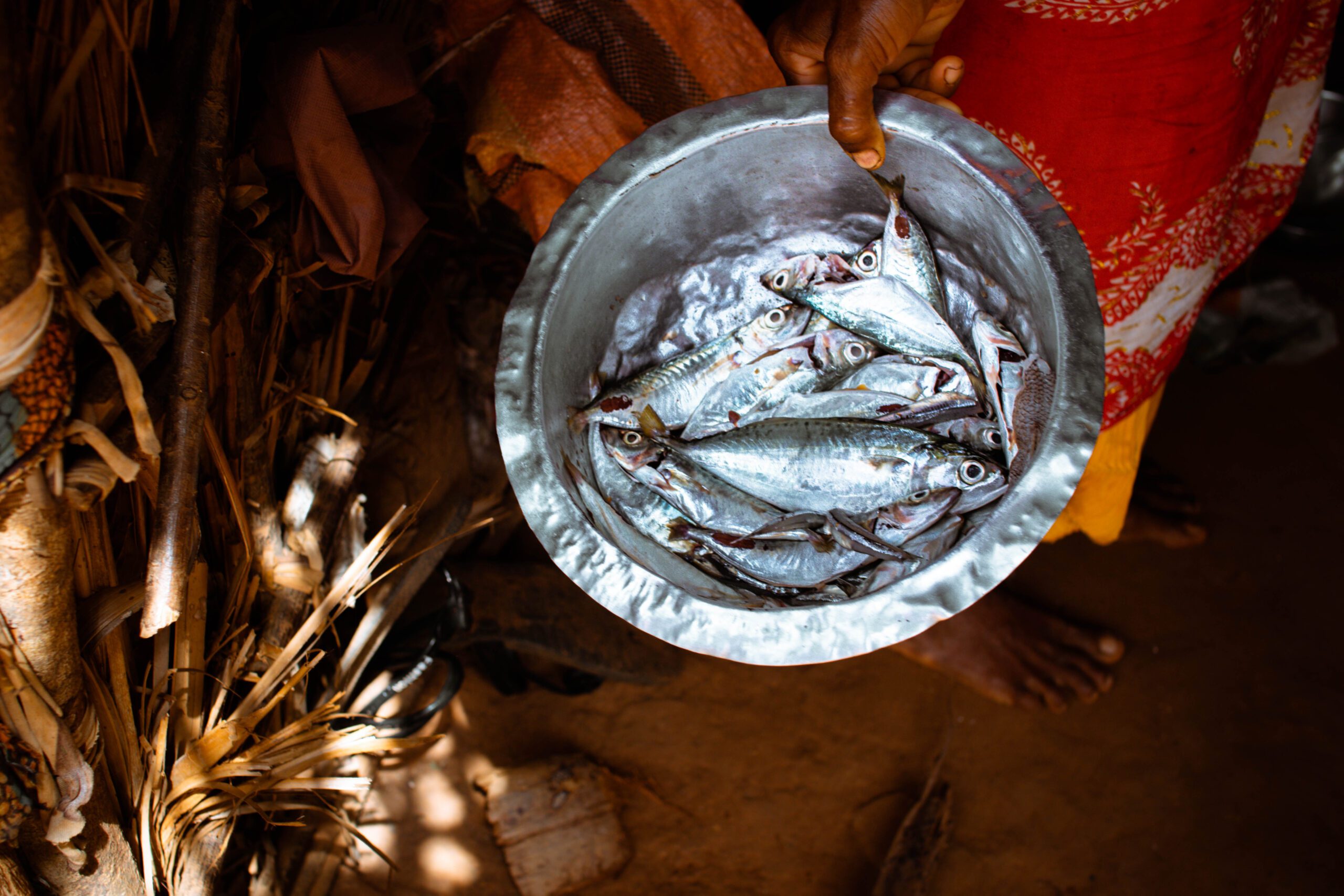
One of the highlights of Ramadan in Zanzibar is the nightly Iftar meals, which are shared with family and friends to break the fast at sunset. The traditional Iftar meal includes dates, water, and other local delicacies such as samosas and sweets. In the evenings, the streets are filled with vendors selling traditional foods and drinks, and people gather to socialize and celebrate. Many mosques also host special prayers and activities during Ramadan.
Overall, Ramadan is a special time in Zanzibar that brings people together and reinforces the importance of community, charity, and spirituality. It is a unique opportunity to experience the rich culture and traditions of the island and its people.

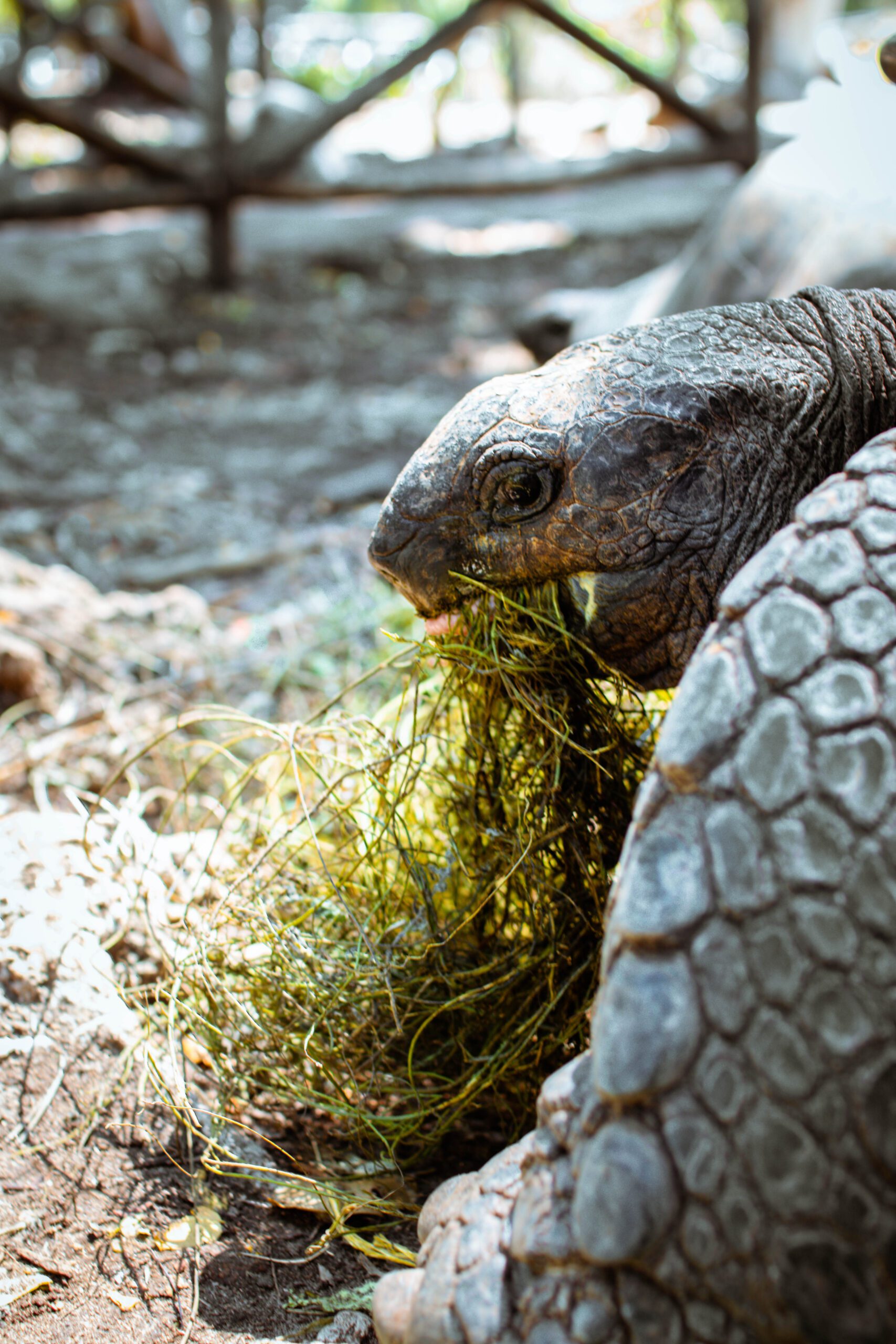
Were there prisoners in the 'prison island'?
Take a boat and meet the history of the island
As we arrived at Prison Island, also known as Changuu Island, we were struck by the beautiful turquoise waters and white sandy beaches. The island’s most famous inhabitants are the Aldabra giant tortoises, which are over 100 years old and roam freely around the island. We were amazed by their size and gentle nature and took the opportunity to take photos and learn about their history on the island.
Originally, the island was used as a detention center for slaves and later served as a quarantine station for people with infectious diseases. During our tour, our guide shared with us the rich history of the island and its transformation from a place of suffering to a sanctuary for these beautiful creatures.
We also explored the ruins of the prison building and the former hospital, which gave us a glimpse into the island’s dark past. It was a sobering reminder of the atrocities committed during the era of the slave trade and the importance of remembering and learning from history.
Overall, our visit to Prison Island was a unique and enlightening experience. We were impressed by the beauty of the island and the fascinating history it holds. And of course, the opportunity to interact with the majestic tortoises was an unforgettable highlight of our trip to Zanzibar.
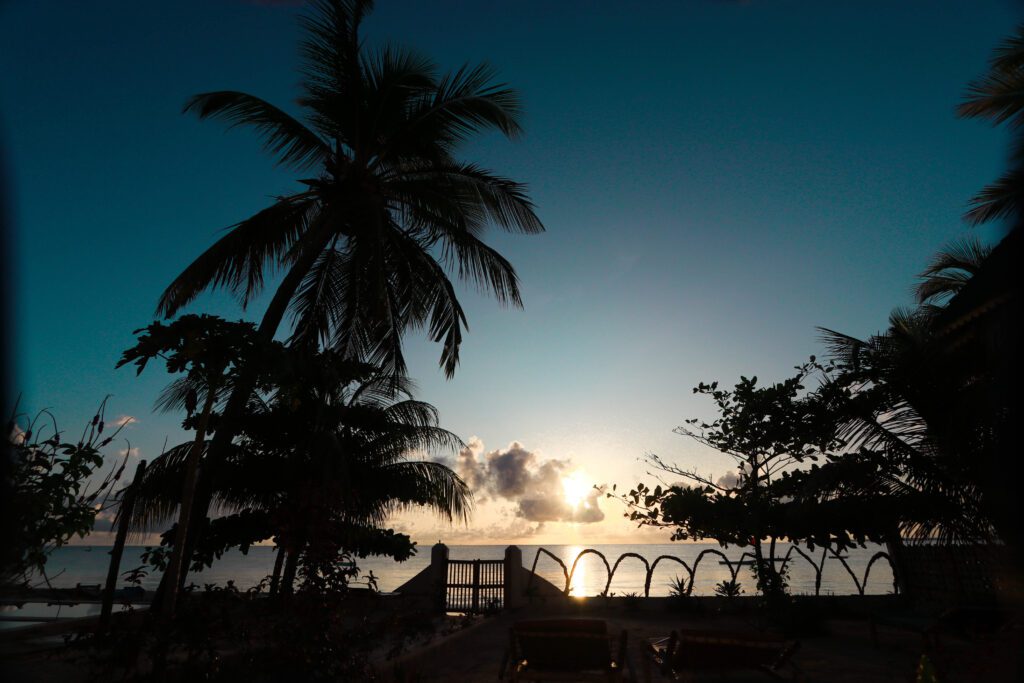
Discover Essential Information Here
5/5
Zanzibar
Pros:
1. Excellent Diving and Snorkeling Locations
Zanzibar is a paradise for diving enthusiasts. With coral reefs surrounding the island, it offers beautiful diving and snorkeling locations, such as Mnemba Atoll and Mafia Island Marine Park, where you can explore a colorful underwater world.
2. Wildlife and Nature
Zanzibar has more to offer than just beaches. The Jozani Chwaka Bay National Park is home to the rare red colobus monkeys and offers a unique opportunity to see these animals in their natural habitat. There are also opportunities to spot dolphins and explore mangroves.
3. Warm Tropical Climate
Zanzibar enjoys a warm tropical climate all year round, making it a perfect destination for sun worshippers. Whether you travel in winter or summer, you can always count on pleasant temperatures.
Cons:
1. Limited Infrastructure
While Zanzibar has a lot of charm, the island’s infrastructure can sometimes be lacking compared to Western standards. This can include less reliable electricity, limited internet, and less advanced medical facilities.
2. Cultural Differences
Zanzibar is a predominantly Muslim island, meaning that visitors should be aware of local norms and customs, especially outside of tourist areas. For example, this may mean covering your shoulders and knees, which can be an adjustment for some travelers.
3. Impact of Tourism Development
The rapid development of tourism in Zanzibar has had both positive and negative impacts. While tourism has brought economic benefits, it has also led to environmental damage and the loss of traditional ways of life, which can affect the authenticity of some experiences.
More interesting posts


